Mike Walker
Although his name is little known to the general public, Mike Walker has been one of New Zealand’s most highly regarded pianists for over half a century, playing mostly jazz but with a smattering of pop, rock and cabaret.
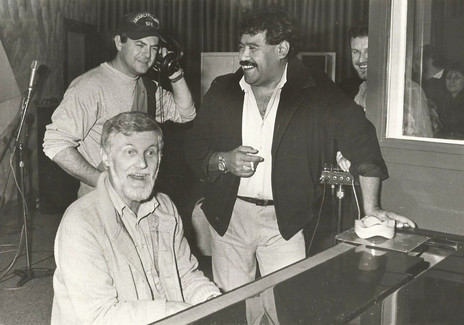
Mike Walker with Billy T James and Frank Conway at far right.
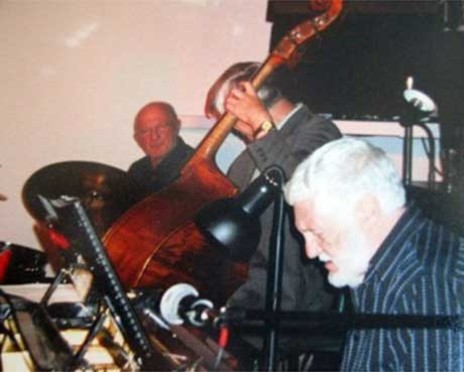
Tony Hopkins, Kevin Haines and Mike Walker
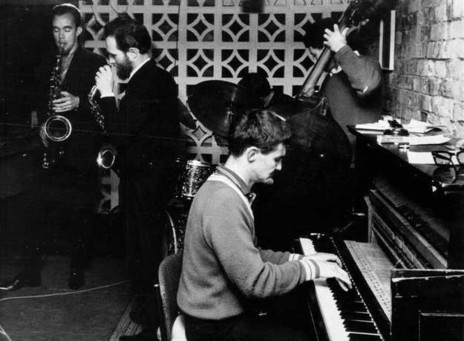
Bob Gillett, Brian Smith, Tony Hopkins (obscured), Mike Walker and Neville Whitehead
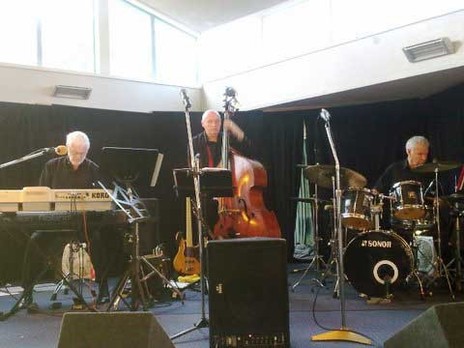
The Mike Walker Trio, 2011: Mike Walker, Pete McGregor and Bruce King
Marlene Tong at the Colony, backed by the Mike Walker Trio, recorded by Merv Thomas
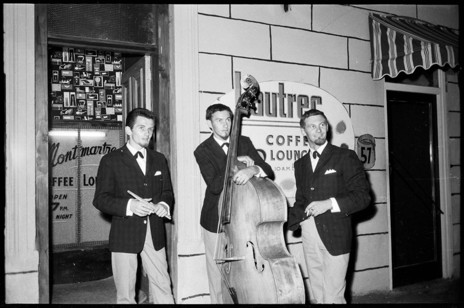
The Mike Walker trio standing outside Montmartre coffee lounge and Lautrec coffee lounge, 30 December 1961. The occasion was the opening night for Lautrec, which was across from where the Auckland central library now stands on Lorne Street. From left: Frank Conway, Neville Whitehead, Mike Walker.
Photo credit:
Auckland Libraries, Rykenberg Collection, 1269-E161-29
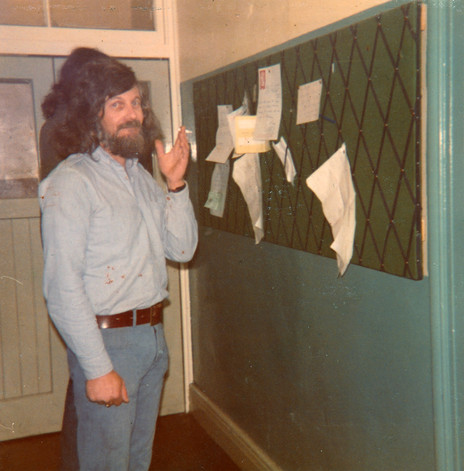
Mike "Spike" Walker backstage, probably at the Theatre Royal, Christchurch, during a season of 'Hair'.
Photo credit:
Rosa Shiels.
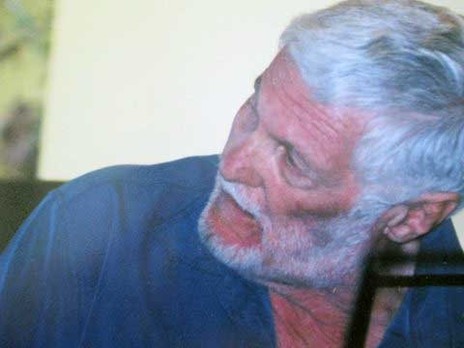
Mike Walker
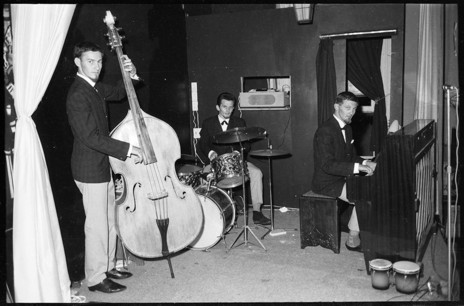
Mike Walker trio, Neville Whitehead playing double bass, Frank Conway on drums and Mike Walker playing piano, at the Lautrec Coffee Lounge on opening night.
Photo credit:
Sir George Grey Special Collections, Auckland Libraries, 1269-E161-28
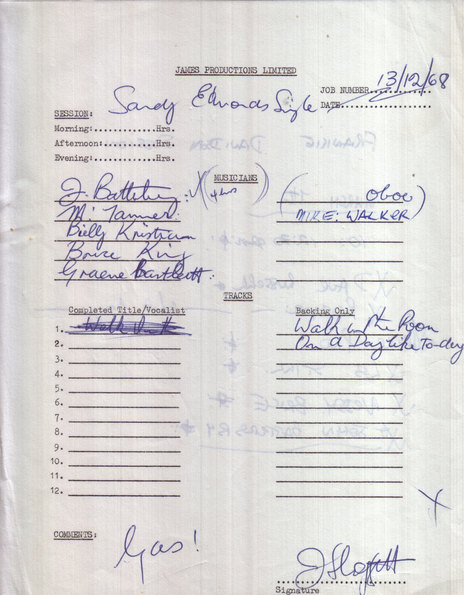
The original session notes for Sandy Edmonds' 1968 recording of the backing of her hit When You Walk In The Room. The session was produced by Jimmie Sloggett and the musicians included Billy Kristian, Bruce King, Murray Tanner, Gray Bartlett and Mike Walker.
Photo credit:
Phil Warren archive
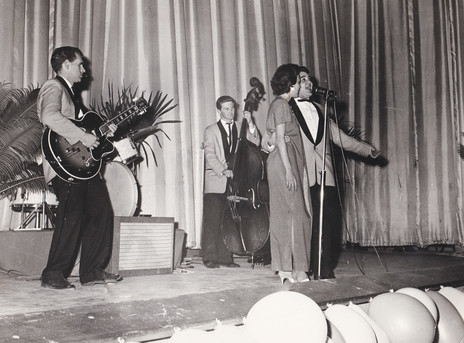
Mike Walker, Canberra 1960.
Ray Woolf backed by Mike Walker on piano - Mack The Knife
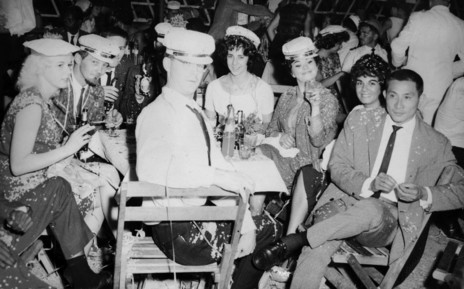
Mike Walker, New Caledonia, 1960.
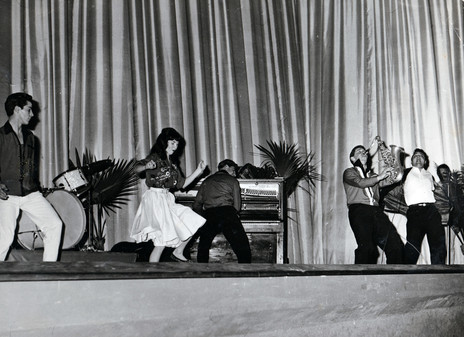
Mike Walker on tenor saxophone, New Caledonia, 1960.
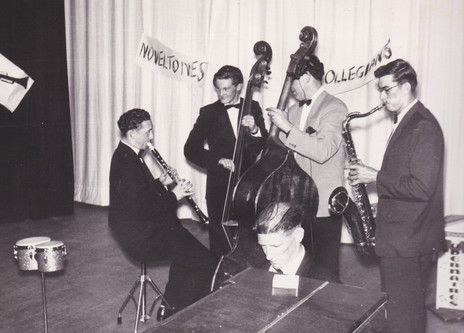
Musicians Ball in Thames, 1957.
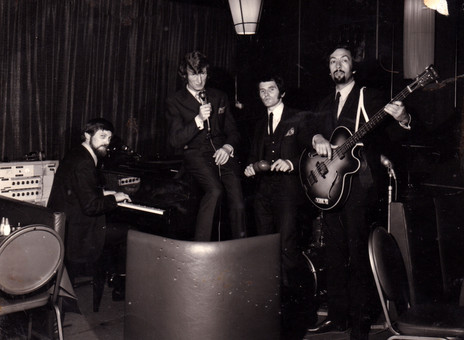
Mike Walker, Tommy Adderley, Les Still and Frank Conway at El Matador Restaurant, 1965.
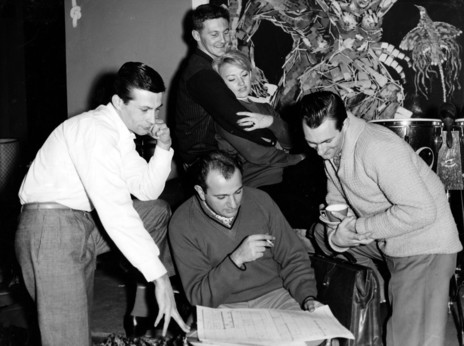
Mike Walker in Canberra, 1960.
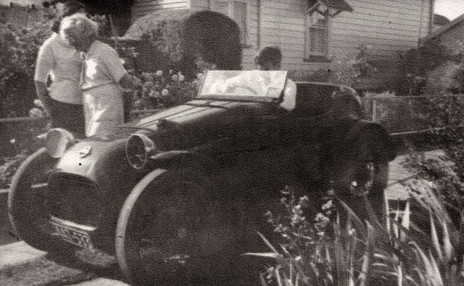
Mike Walker's first racing car, an Austin 7 Special. Mike is in the driver's seat and his parents Herb and Eilleen are standing.
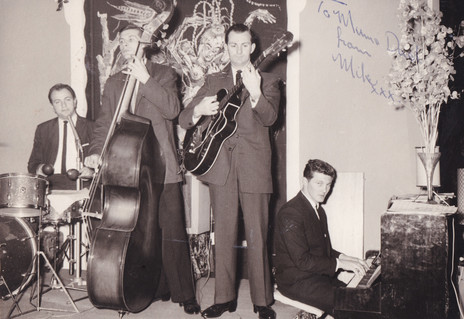
Mike Walker, Canberra 1960.
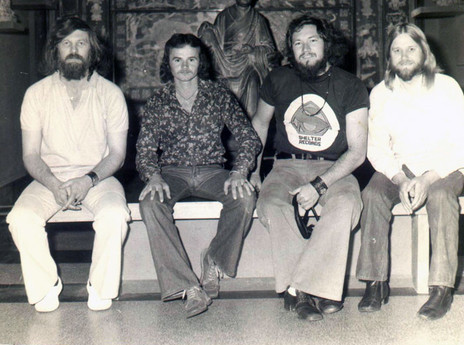
Alley Oop: Mike Walker, keyboards, Trevor Harrison, vocals, Billy Kristian, bass and Jimmy Hill, drums.
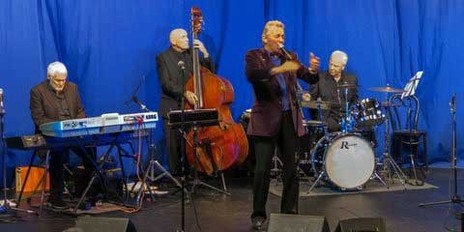
Mike Walker Trio backing Ray Woolf: Mike Walker, Pete McGregor, Ray Woolf and Bruce King
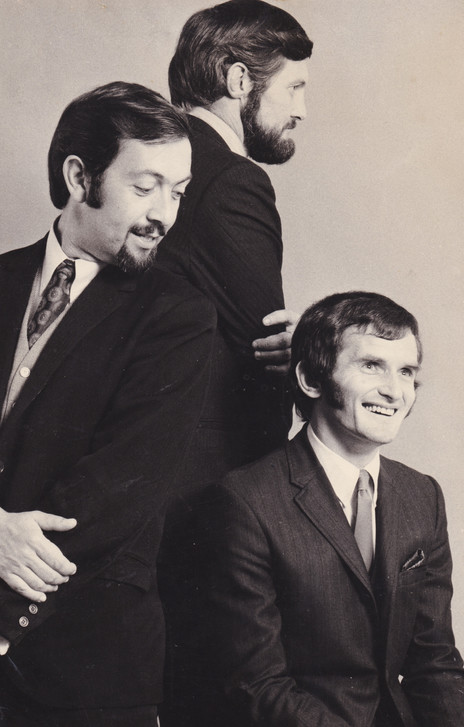
Mike Walker with bassist Les Still (left) and drummer Frank Conway (right).
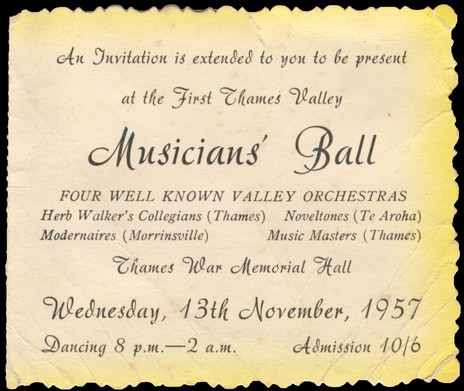
Mike Walker grew up in a musical family in Thames. This invitation to the 1957 Musicians' Ball in Thames features his father Herb Walker's Collegians and three other local bands. At the time, Mike was 17 and just out of the army.
Photo credit:
Chris Bourke collection
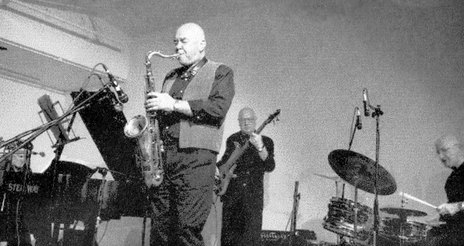
Brian Smith at Auckland Art Gallery with Mike Walker, Billy Kristian and Tony Hopkins
Photo credit:
Brian Smith Collection
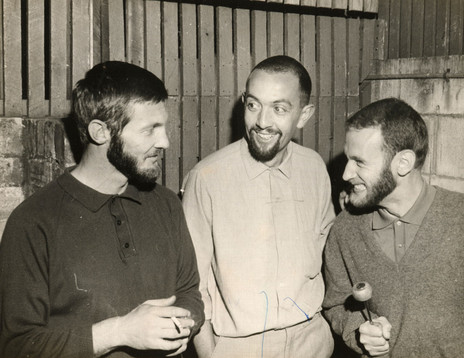
Mike Walker, Les Still and Roger Sellers at Auckland's Embers nightclub in the early 1960s
Photo credit:
Chris Bourke collection
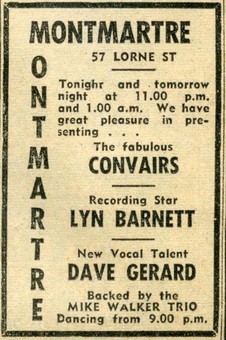
Montmartre advertisement, early 1960s, featuring Lyn Barnett, the Convairs, and introducing Dave Gerard. Backing group: the Mike Walker Trio. Second show starts at 1.00am.

